Alison Moyet - Interview
by Paul Waller
published: 29 / 4 / 2013
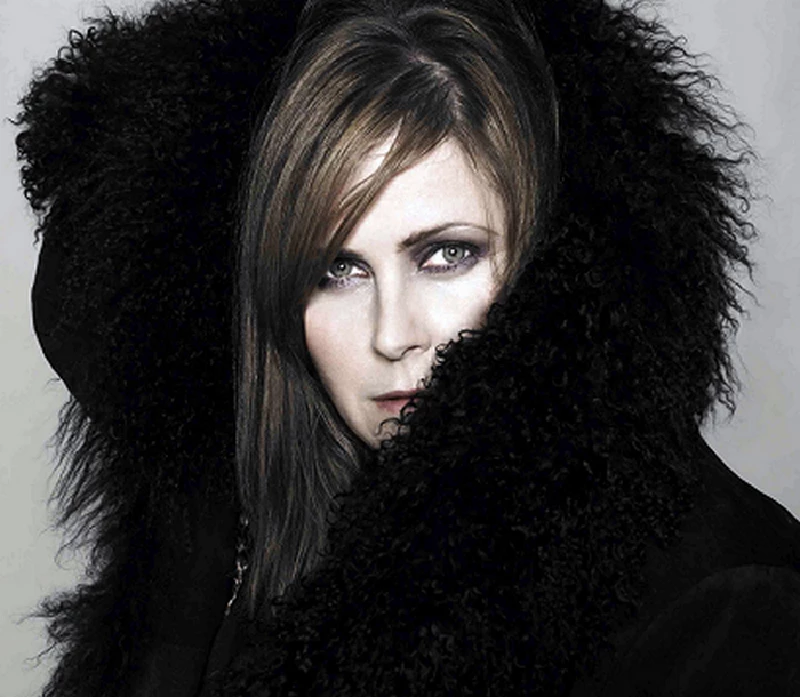
intro
Paul Waller talks to Alison Moyet about her electronic-fuelled first album in five years, 'the minutes'
Growing up as a rebel outsider in Basildon, Essex, the young Alison Moyet played in a handful of local punk bands until a chance vocal session with Vince Clarke reaped massive rewards. Clarke, who had recently left Depeche Mode, found in Alison the voice he didn’t even realise he was looking for and Yazoo was born. Whilst Yazoo burned brightly, they only lasted for a couple of albums and after they disbanded both Vince and Alison propelled themselves into work, Clarke with Erasure and Moyet with her solo career which is where I came into the fray. In 1984 my 10 year old music-obsessed self was addicted to Moyet’s debut album ‘Alf’, and I played the vinyl so often that when I scratched the majority of the second side by accidentally standing on it my mum paid for a new copy when she saw how upset I was. Since the incredible success of ‘Alf’ and its 1987 lacklustre follow-up ‘Raindancing’, Alison has continued to make music for both major and independent record labels with varying levels of success, and now is embarking on a fresh leg of her musical journey. She has a new electronica-fuelled album entitled ‘the minutes’on Cooking Vinyl, which quite simply put may be the best record she has recorded since her debut with Yazoo. With this knowledge to hand, Pennyblackmusic spoke to Alison about the record, and asked what exactly the inspiration that led to its creation was. PB: Why was there a five and a half year wait between your last album ‘The Turn’ and ‘the minutes’? AM: It gets trickier to make records when you get to this stage of your career. I did have lots of offers regarding record deals, but they were all for cover albums and I didn’t want to do it. I don’t have issues with covering classic songs at all, but that is not where I am at in this point in time. So what I had to do was decide to make an album off my own bat and then present it as fait accompli. So I met with Guy [Sigsworth – producer who has previously worked with Bjork, Madonna and Imogen Heap-Ed] and we really got into each other, and decided to do this together, and make a record where we were completely free of A&R and any talk of demographics and that kind of thing. We worked in his downtime and in between his paid projects, and then when it was done the first label that we took it to who was Cooking Vinyl were dead up for it, so it all worked out well. It was a different way of doing things. I wanted it to be the way it was right back in the early days when you weren’t weighed down with expectations or having people assume what kind of an act you are. PB: People’s tastes change in five years. When the new track ‘Changeling’ was put up on the internet, it was a huge change and a very welcome one. Did you develop the taste for electronic music once again in this time or did your passion for it never dissipate? AM: I wanted to make an electronic record for a long, long time, but what was putting me off was that technological movement in the 1990s where it became only about the sound and the vocals were so crammed in that it almost got to the point where you wished nobody sung at all. There was a lack of musicality, a lot of brilliant and talented technical people, but not a lot of great musicians. The great thing about Guy Sigsworth was that he was a harpsichordist at Cambridge University where he was trained classically, so his musicality is completely honed. Yet he has come away from that and lived with experimentation and technology, so he was the perfect bed mate for me and could paint around a voice in terms of soundscape. PB: The musical pallet is quite adventurous also, even down to the urban futuristic downward spiral of the verse on ‘Remind Yourself’. There are clever twists and turns all over the place. AM: For that one there was a kind of French inflection with the melody and the suggested chord changes. With the way that he and I write together, there are different variations. For example with that song, I came to him with the verse and the melody, I had an idea of the shape of what the chord structure and melody should be, but how we would work it would be that I would sing to him and he would literally paint around me. On other songs like ‘Changeling’ he sent me over a loop, and on that loop I then wrote three different sections which I pasted together in GarageBand, I sent them back to him, and then he stripped away the loop, and built it back up, so at no time was melody ever compromised or rhythm compromised. Neither of us forced any change on the other. PB: It would appear that whenever you have a row with a record company or leave a label you go on to make your best work. AM: I can’t tell you what that means to me. Thank you so much. The problem for someone like me is that I am never presented as someone that anyone ever imagined had any part of the left field in them. I think when you are a big middle-aged woman there are assumptions made about you. Also the other thing that I felt really restrained by is the fact that I always have been seen to have a good voice, and that is really limiting because no one wants to fuck with you. What is expected from me is always these beautiful vocals and acrobatics and, whilst sometimes that can be appealing to people and making the voice prominent can be appealing also, it’s not what I am about and it’s not what I listen to. I am not particularly interested in singers, and I am interested in very few female singers, and certainly none of them that would count as beautiful singers. I have been limited by that. Sometimes great music is produced by people that have the command of very few chords. PB: Filming the video for ‘When I Was Your Girl’ with your daughter must have been fun. She seemed a natural in front of the screen. AM: She had a hard take to do really; she is sort of like a mini-me in that respect. Within that song there is the idea that when you’re younger your words have less resonance in your mouth, and so she was quite a blank page in it. She is quite a little dude, and she was done up in a certain way that normally she wouldn’t have been happy to be done up like. At my age I don’t care what I look like as long as I get away with it but with kids they find it very important how they present themselves. I think she wanted to have that experience as both my other kids when they were younger had done that kind of stuff with me. There was a real sharing experience going on like how you might go to work with your dad when you were younger. That was our variation on that. I was quite nervous about it and I said to her that she wouldn’t have control how it comes, out and you won’t know how people will respond to you. From my experience you get a lot of shit and you have to be prepared for that. Being recognisable is not something I would recommend. If I was a big front lone act, I think I would have felt far more uncomfortable about it, but the fact that this is going to be a little release and will come and go it makes it less of a thing. I do like being frank about my age, I think it’s important to represent middle-aged women and middle- aged mothers as not being washed up regarding creative endeavours as sometimes the media would have you believe. PB: You seem to have nailed exactly that within the lyrical and the technological aspects of ‘the minutes’. AM: Absolutely. If you think about my generation and the music that we grew up with, it was far more cutting-edge than what my children are exposed to. It is far more homogenised now and tailored towards demographics. It’s a constant lesson that we have to teach our children that the vision of them in the future does not have to be one that their only purpose is to facilitate the needs of other people. Don’t get me wrong! I like to facilitate other people and to nurture others, but not at the expense of exempting who I am as a character. It’s quite funny. Someone told me off the other day for swearing. I thought “Who are you to tell me what my moral code should be?” I will swear quite happily, but you’ll never find me dissing a stranger…I think I may have gone off point. PB: (Laughs) AM: The point I am trying to get across is that we the women that grew up in the 60s are not the same as the women that grew up in the 30s. PB: You mentioned your voice earlier on and as it happens when you sing your voice is instantly recognisable. People will speak about you the same breath as the likes of Aretha Franklin, Annie Lennox, Nina Simone and even people like Sade. How do you see your own legacy? AM: I certainly don’t see it as flawless, and that’s kind of alright because I am not afraid of getting things wrong. I am far more afraid of slipping into a place where I no longer challenge myself, where I don’t try. At this age I would much rather stand on the dance floor and make a cunt of myself than do that eternal thing of standing there and withering with every other person that wants to engage with life but doesn’t. I have made mistakes as well as done things really solidly, and it’s only by challenging myself and getting it wrong that I figure out how to get it right. PB: I remember myself as a kid of nine in 1984 parading myself around the house singing to my mum, trying to impress her that I knew all the lyrics to ‘Love Resurrection’. Later on in life when I read those lyrics back, I realised my mum must have been mortified. AM: I don’t want to spoil anything for anyone, but I can genuinely say that I wasn’t thinking filthy at that time, I was kind of thinking GCSE poetry. I was just at that age. I left school at 16 completely unqualified in every area you could possibly imagine except for a bad ‘O’ Level in French, so I was learning my language at the same time as I was learning my music knowing that I was trying to find a language that sat outside of common pop parlours, I’ve always known that, but at the same time I am still an uneducated little red woman, so it was actually about finding language and discovering metaphors before you really know what a metaphor is. So, yes, everyone went away and thought I was singing about cock, but I really wasn’t. PB: The Yazoo reunion appeared to go perfectly. The shows were great and any burned bridges between you and Vince Clarke appeared to have been re-paved. I know that you will be playing a couple of Yazoo tracks on the upcoming tour, but do you think that part of your life have finally been put to bed? AM: Well, I am always open to anything as long as you catch me on the right day, short of celebrity television that is. I did love that period but I don’t see it happening again because I was a transitional relationship for Vince. He had a true band marriage with Depeche Mode, and also is in one now with Erasure, and I was like the office fling, I think it would be too much of a betrayal for him to keep revisiting me now in his current situation, but I must say that I am really enjoying revisiting some of that Yazoo stuff with that Sigsworth look at it. That’s been quite interesting. PB: Finally your upcoming September/October tour in support of ‘the minutes’ album looks like it will be a huge amount of fun for your long-time fans. Was the recent release show you played in London an indicator of what punters can expect? AM: Yes, but expanded on that. That will effectively be the vibe, I’m not going to be touring with Guy obviously as he is a studio fellow, so the person taking that position that I’m taking along is a fellow called John Garden who I worked with on the ‘Hometime’ album, so the stage set up will be far more minimal, just me, him and maybe one other, so probably there will just be three of us on the stage. There will be screens, and the whole thing will have an electronic bias. PB: Thank you.
Band Links:-
http://alisonmoyet.com/https://en-gb.facebook.com/AlisonMoyet/
https://twitter.com/AlisonMoyet
Picture Gallery:-
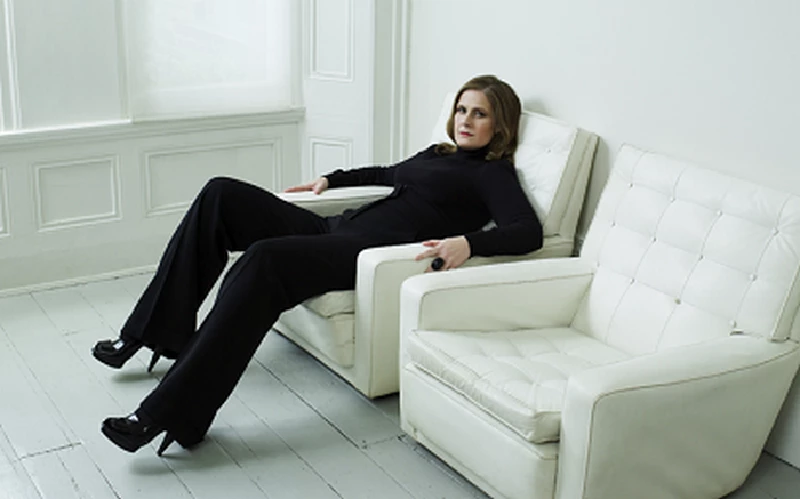
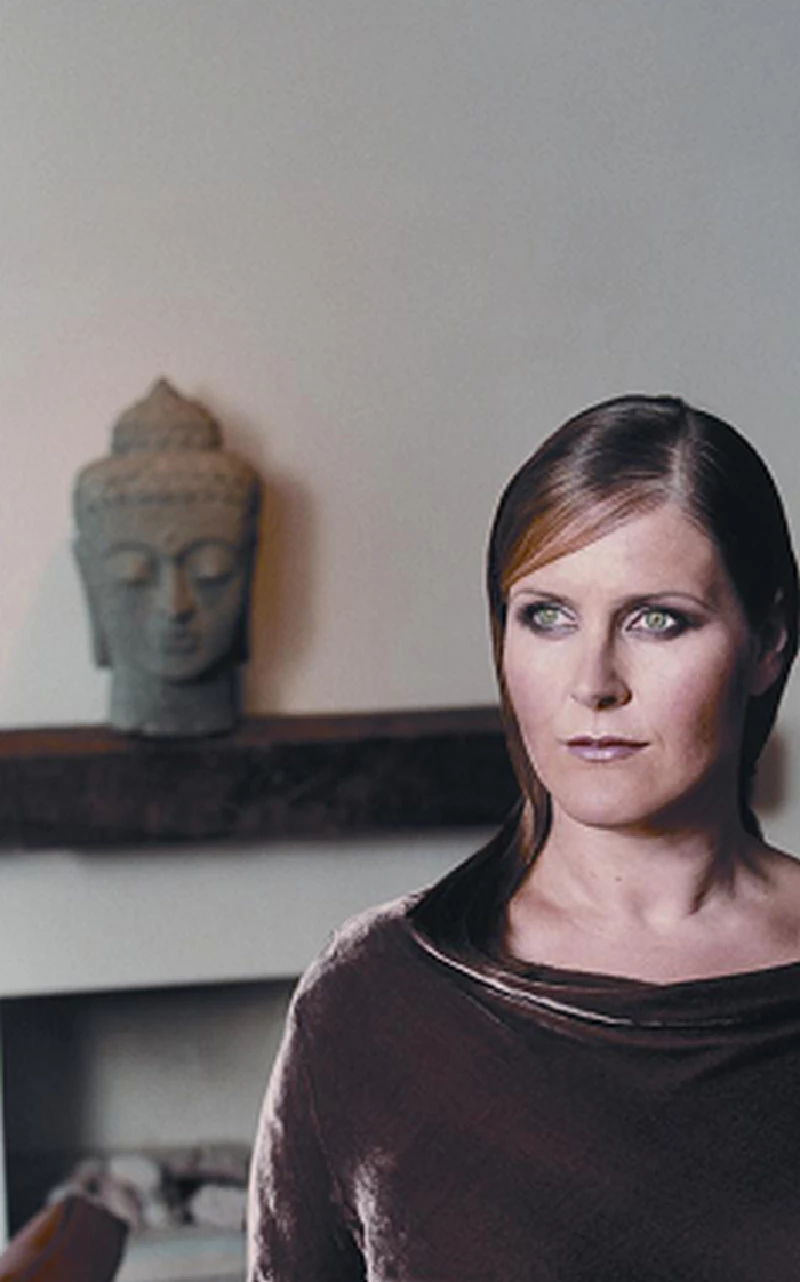
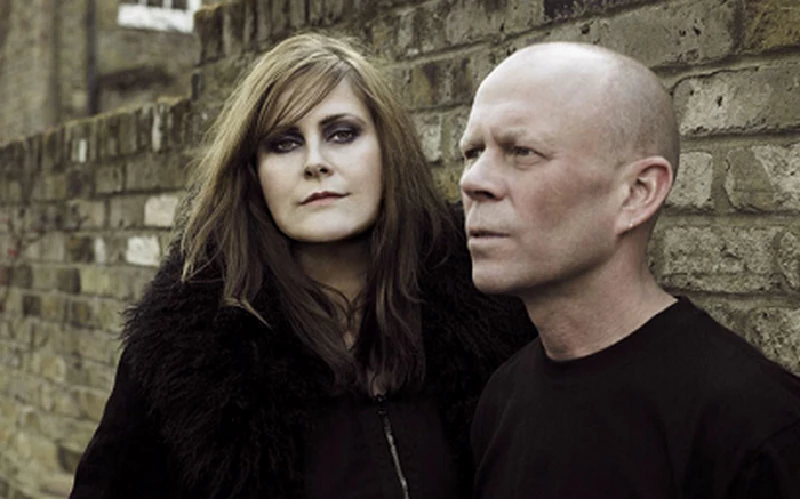
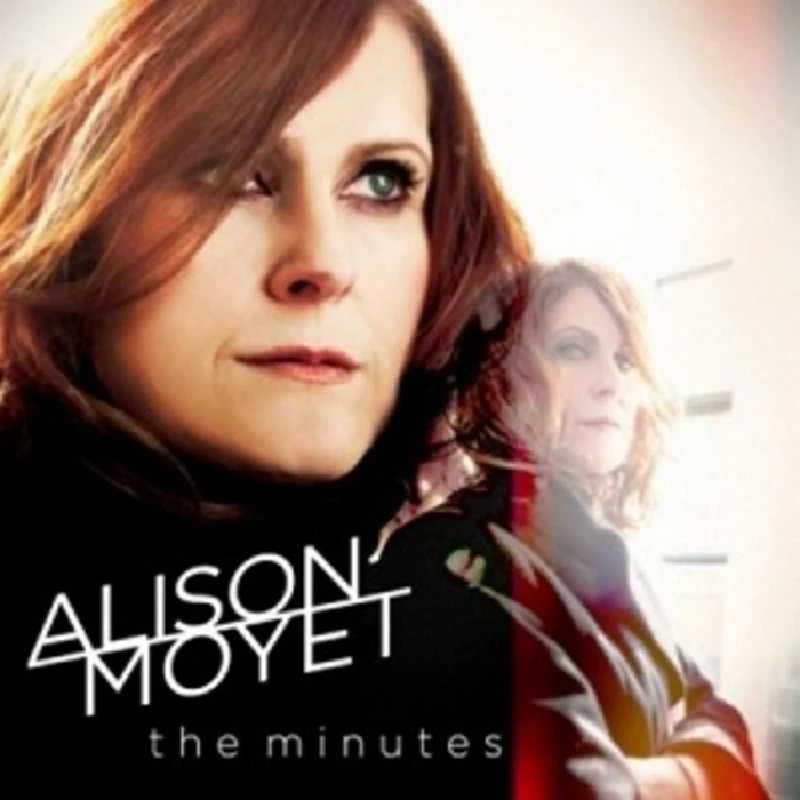
profiles |
|
Profile (2017) |

|
| The reissue of Alison Moyet’s first four albums gives Adrian Janes the chance to reappraise a versatile singer whose initial embrace of blues and electronica grew to include many other influences |
live reviews |
|
Cliffs Pavilion, Southend, 11/11/2017 |
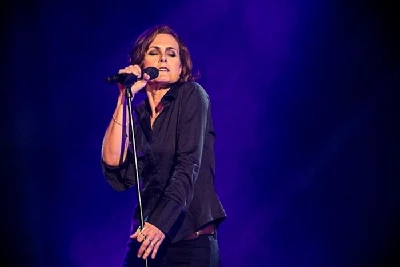
|
| Adrian Janes watches Alison Moyet play a down-to-earth but gripping gig at Cliffs Pavilion in Southend |
most viewed articles
current edition
Carl Ewens - David Bowie 1964 to 1982 On Track: Every Album, Every SongArmory Show - Interview with Richard Jobson
John McKay - Interview
Colin Blunstone - Thalia Hall, Chicago, 16/7/2025
Bathers - Photoscapes 1
Billie Eilish - O2 Arena, London, 10/7/2025
Loft - Interview
Visor Fest - Valencia, Spain, 26/9/2025...27/9/2025
Sir Tim Rice - Interview
Robert Forster - Interview
previous editions
Manic Street Preachers - (Gig of a Lifetime) Millennium Stadium, Cardiff, December 1999Heavenly - P.U.N.K. Girl EP
Beautiful South - Ten Songs That Made Me Love...
Peter Perrett - In Dreams Begin Responsibilities Interview Part One
Boomtown Rats - Ten Songs That Made Me Love....
Oasis - Oasis, Earl's Court, London, 1995
Coldplay - Wembley Arena. London, 16/8/2022
Prolapse - Interview
Trudie Myerscough-Harris - Interview
Pixies - Ten Songs That Made Me Love...
most viewed reviews
current edition
Davey Woodward - Mumbo in the JumboSick Man of Europe - The Sick Man of Europe
Lucy Spraggan - Other Sides of the Moon
Amy Macdonald - Is This What You've Been Waiting For?
Suzanne Vega - Flying With Angels
Blueboy - 2
Bush - I Beat Loneliness
Phew, Erika Kobayashi,, Dieter Moebius - Radium Girls
Alice Cooper - The Revenge of Alice Cooper
Cynthia Erivo - I Forgive You
Pennyblackmusic Regular Contributors
Adrian Janes
Amanda J. Window
Andrew Twambley
Anthony Dhanendran
Benjamin Howarth
Cila Warncke
Daniel Cressey
Darren Aston
Dastardly
Dave Goodwin
Denzil Watson
Dominic B. Simpson
Eoghan Lyng
Fiona Hutchings
Harry Sherriff
Helen Tipping
Jamie Rowland
John Clarkson
Julie Cruickshank
Kimberly Bright
Lisa Torem
Maarten Schiethart